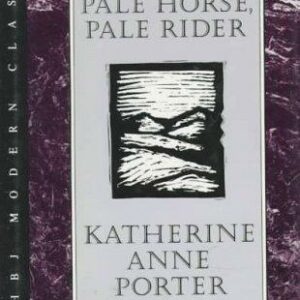Seneca
$95.00
| Title | Range | Discount |
|---|---|---|
| Trade Discount | 5 + | 25% |
- Description
- Additional information
Description
A selection of Seneca’s most significant letters that illuminate his philosophical and personal life.
“There is only one course of action that can make you happy. . . . rejoice in what is yours. What is it that is yours? Yourself; the best part of you.”
In the year 62, citing health issues, the Roman philosopher Seneca withdrew from public service and devoted his time to writing. His letters from this period offer a window onto his experience as a landowner, a traveler, and a man coping with the onset of old age. They share his ideas on everything from the treatment of enslaved people to the perils of seafaring, and they provide lucid explanations for many key points of Stoic philosophy.
This selection of fifty letters brings out the essentials of Seneca’s thought, with much that speaks directly to the modern reader. Above all, they explore the inner life of the individual who proceeds through philosophical inquiry from a state of emotional turmoil to true friendship, self-determination, and personal excellence. Lucius Annaeus Seneca (4BCE-65CE) was a Roman Stoic philosopher, dramatist, and advisor to Emperor Nero. Margaret Graver is the Aaron Lawrence Professor in Classics at Dartmouth College. Her publications include Cicero on the Emotions: Tusculan Disputations 3 and 4; Stoicism and Emotion; and, in collaboration with A.A. Long, a complete translation of Seneca’s Letters on Ethics. A.A. Long is chancellor’s professor of classics emeritus and affiliated professor of philosophy at the University of California, Berkeley. His books include Greek Models of Mind and Self and Epictetus: How to be Free.
The best way to learn about Seneca, as a person and as a philosopher, is to read his letters. Begun late in his life, the Letters on Ethics adhere to a format that he himself devised and that proved especially congenial to his talents. These are serious writings, using the intimacy of the personal letter as a vehicle for a searching examination of values and life choices. In this, they resemble the letters of the philosopher Epicurus, which Seneca had studied extensively. Unlike Epicurus, though, Seneca addresses all his letters to one individual, his younger friend Gaius Lucilius Iunior. The collection does not include any letters written by the friend, and yet Lucilius is constantly made present to us through frequent references to his life experiences and his questions about philosophy. As readers, we come to feel that we know both men at a deep level. Still, these letters are not a private correspondence like Cicero’s letters to his friend Atticus. They are meant to be shared with a wider public, to bring comfort in difficult times, intellectual engagement, and sheer entertainment to those outside the author’s own circle.
In this work we do not find much of the story of Seneca’s life as reported later by the historians Tacitus and Dio Cassius: his tutoring the young Nero, his work as a speechwriter, and the charges of his political opponents. After all, he wrote the Letters in the two to three years before his death in 65 CE, after he had withdrawn entirely from the imperial court. Nonetheless, there are elements of autobiography in the work. Seneca describes his early experience as a vegetarian, his travels in and around Pompeii, his daily routine. He mentions his wife Paulina, his brother Gallio, and his deceased father, whom we know as Seneca the Elder. At age sixty- five, he tells us what it is like to come near dying from shortness of breath. More than once he sketches an incident that makes him look ridiculous: his cluelessness on visiting an aging property of his own, his effort to cross the Bay of Naples in choppy seas, his sitting down in a schoolroom among teenagers. We do not get the big events of his life so much as the small but significant ones.
Reading more closely, we can collect some information about his personal situation. We see that he owns a great deal of property since he mentions visiting three of his own villas. While his personal habits are austere, he makes it clear that for someone like him, simple living is a matter of choice, not economic necessity. Similarly, it is by choice that he now has no influence on the affairs of state. Early in the correspondence, he establishes a parallel between the political career he has now abandoned and that of Lucilius, a man familiar with the imperial court who is still active as civil governor of Sicily. As Seneca urges his friend to withdraw from his public position and devote himself to a life of study, we catch the tensions that might attend such a decision. Those tensions were very real, for those who had entered public service were expected to stay on, not only by their peers but also by a powerful and unpredictable ruler. That same dynamic was to be explored later by Tacitus, who writes it as a dialogue between Seneca and the emperor Nero himself.
Significantly, the letters make no direct mention of Nero or of his immediate family. On the face of it, Seneca’s stance is apolitical. Sounding a theme that was already traditional in philosophy, he remarks on the gratitude that philosophers should feel toward those who provide the benefits of peace. His own retreat from politics is repeatedly explained as the consequence of ill health and a desire for study; it is not to be taken as criticism of the current regime. Yet the anxiety with which he speaks of the dangers of insubordination is highly revealing. Just as in another of his works he speaks of the “fires and torments” Lucilius had witnessed at the court of Gaius Caligula, so here he speaks feelingly of imprisonment, torture, and execution as real possibilities for men like himself. His admiration for such historical figures as Publius Rutilius Rufus, Scipio Africanus, Quintus Aelius Tubero, and especially Cato the Younger suggests nostalgia for the old days of the Roman Republic, but he does not imply that those days could ever return.
More generally, Seneca uses his rhetorical skills and satirical wit to expose the decadence of the elite Roman society he knows so well. He is often critical of extravagant expenditures, on everything from glassware to bathing establishments, and he can be scathingly funny about the ridiculous habits of his contemporaries. The violence and cruelty of Roman reality are constantly brought to the fore, notably the gladiatorial contests, the harsh treatment of the enslaved and of prisoners, and the sexual exploitation of women and boys. Yet it is not the times alone that are at fault, for he also refers to one of Cicero’s letters for an instance of shocking moral degeneracy in the time of Cato. The values and practices of contemporary Roman society are completely out of joint, but the vice that pervades Rome affects human societies in every era.
In all this, his point is about the corruption of existing human societies, not about human nature as such. However flawed our surrounding culture may be, our innate sociability is nonetheless a basic guide to action. As rational beings, we have a natural instinct to seek companionship and genuine friendship, and we can learn to recognize the responsibilities we have, not only toward our immediate communities but also toward the worldwide community. These are the Stoic values that Seneca finds quite absent from the dominant ideology of his time. Ultimately it is this principle of the interconnectedness of all human beings that gives rise to the Letters on Ethics themselves. Seneca states the premise of his entire work near the beginning of letter 8, where he writes,
The work that I am doing is for posterity: it is they who can benefit from what I write. I am committing to the page some healthful admonitions, like the recipes for useful salves. I have found these effective on my own sores, which, even if not completely healed, have ceased to spread. The right path, which I myself discovered late in life when weary from wandering, I now point out to others.
He thus offers an answer to a question that had long been debated among philosophers, one that he himself had investigated in the brief essay On Leisure. If every one of us has a responsibility to serve the community throughout life, then how can anyone be justified in spending long periods in philosophical study and reflection? For Seneca, a scholarly retreat is itself a form of public service. Although philosophers may not be able to solve the immediate problems of their societies, their writings can still benefit others by teaching readers of every time and place how to live happy and productive lives.
To be sure, this stated purpose implies a rather limited range of objectives for philosophical writing. Not all philosophy offers social benefits of exactly that kind. But Seneca can find excuses to incorporate many different intellectual issues into his work, while still keeping his primary emphasis on the most basic themes of ethics: the importance of personal integrity, the foundations of friendship, the reasons not to fear pain and death, and the management of one’s emotions.
Additional information
| Dimensions | 1 × 6 × 9 in |
|---|









